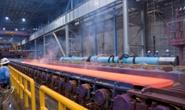Prices

March 10, 2016
Debate Over What is “The Dirty Little Secret?"
Written by John Packard
Recently, Steel Market Update produced an article regarding a discussion between Dan DiMicco, former CEO of Nucor and another one of our LinkedIn members who, in a past life, was responsible for buying foreign slabs for a domestic steel mill. Here is a small clip of that conversation:
LinkedIn member: Of course I don’t imagine that any of the domestic mills called to complain about the millions of tons of slab and band that they themselves are importing. This is a curious topic that the news media, most analysts, and politicians have kept as the industry’s “dirty little secret”. Where are the cries for tariffs on Brazilian slabs and Korean hot bands?
Dan DiMicco: “Dead wrong it is a big issue being discussed now and in the past … so much for dirty little secrets….”
Mr. DiMicco went on to suggest that the domestic steel mills are in Washington, D.C. lobbying to remove foreign slabs from the market, Dan DiMicco: Trust me with all due respect! You won’t hear about it till it’s done. This has been a hot issue with all those not buying slabs or billets many times over the last 16 years. It is being discussed in Washington as I type.”
Our article prompted a few questions about the ability of the domestic steel mills to roll as much steel as is needed in the United States. We asked Dan DiMicco if the domestic mills had that ability to which he replied, “Yes.”
We asked Nucor to comment as well and Katherine Miller their Communications Director advised us, “Based on flat-rolled steel capacity and demand in the U.S. last year, domestic mills have the ability to meet flat-rolled steel demand.
For over two years, historically high levels of imports have been flooding our market. We have no issue with fairly-traded imports. But the import levels we are experiencing defy market fundamentals. What we have a problem with, and what is flooding our market, is unfairly traded imports. These are steel products that receive massive subsidies from foreign governments in violation of trade agreements. When these violations are proven to occur, trade duties are applied to the affected imports. This is absolutely necessary to maintain the integrity of free markets.”
SMU asked a consultant who works with the domestic steel industry if the industry had enough rolling capacity to handle all of the domestic needs and he also answered yes. He told us that the United States has the ability to roll 130 million tons of total carbon steel products. Included in the total number are 87 million tons of flat rolled & plate (hot strip mills, Steckle mills and reversing mills combined) and 43 million tons of long products (bar, rod, structural, rail and seamless used for pipe).
However, Jim Banker, Vice President Commercial for NLMK USA maintains the U.S. may have enough rolling capacity but it does not have enough melt capacity to fill all of the rolling mills. “As for production he [consultant above] is wrong. There is no domestic market for merchant slabs. So the converters must buy offshore slabs. The mills also buy flex tonnage at times, and have for decades. This is not a “dirty little secret” it is well known by anyone with even a remote knowledge of our business. In my opinion the dirty secret is producers who bring in scrap and iron substitutes from offshore and then tout Melted USA, even going to the point of lobbying to restrict slab imports with the end game of driving converters out of business.”
Conversion Mills
There are a number of flat rolled rolling mills that do not have melt capabilities. These include: California Steel (buys slabs), AMNS Calvert (buys slabs), NLMK Pennsylvania (buys slabs), USS/Posco (buys HRC), CSN Terre Haute (buys HRC), Steelscape (buys HRC), Ternium Louisiana (buys CRC), Wheeling Nisshin (buys CRC), Worthington Delta and plate producer Evraz Oregon (buys slabs).
RC Trade Suit Aimed at Domestic Rolling Mills
The domestic mills filed trade suits on hot rolled (Antidumping Preliminary Determination is due to be released by the US Department of Commerce on Tuesday) and some of the countries selected are direct suppliers to some of the mills listed above. USS/Posco brings in HRC from Korea (Korea is involved in the HRC suit), Steelscape is owned by Australian mill Bluescope and it brings in HRC from Australia (also hit by trade suit) and CSN brings in HRC from its parent company in Brazil (also named in HRC trade suit).







